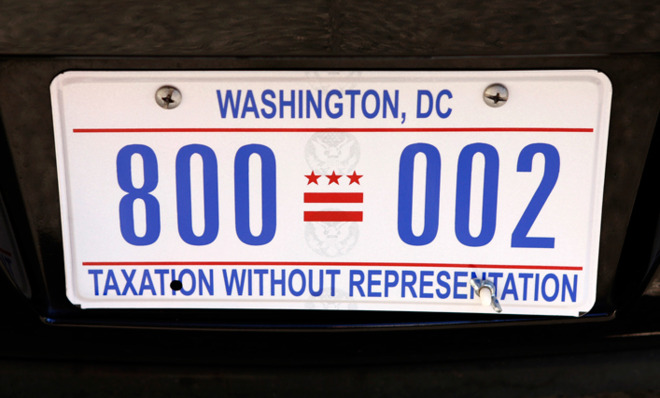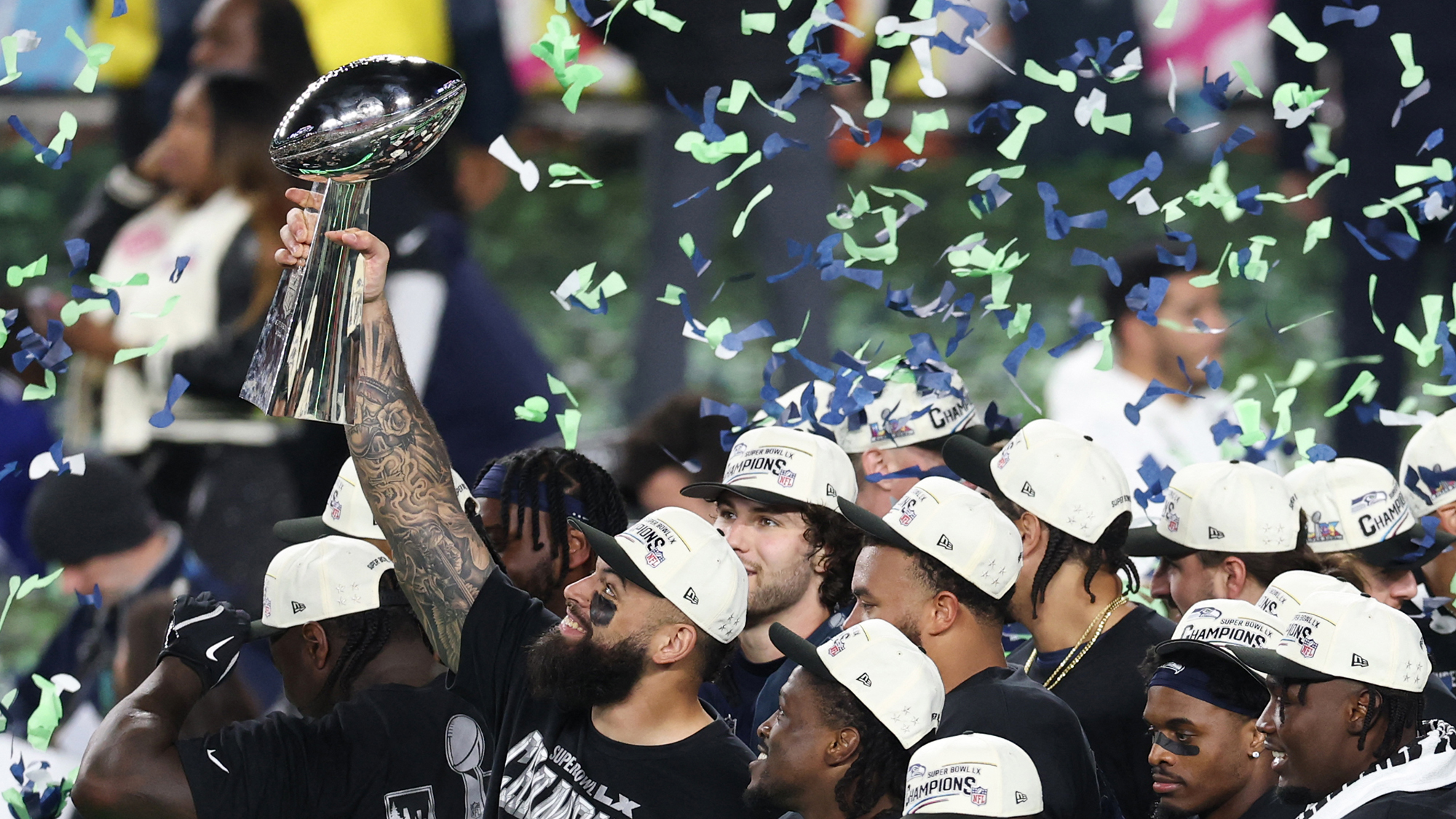6 constitutional amendments that just missed the cut
Some are unnecessary or best left to history. But others are still up for grabs!

A free daily email with the biggest news stories of the day – and the best features from TheWeek.com
You are now subscribed
Your newsletter sign-up was successful

Since 1789, Congress has approved 33 constitutional amendments. Twenty-seven of those amendments were eventually ratified and became part of the Constitution. Six failed after being sent to the states. Here's the scoop on those six that didn't make the grade.
1. House Size
"Article the First" may sound a bit Yoda-esque, but it was actually the first provision in the original proposal for the Bill of Rights. The amendment, which the first Congress approved in September 1789, basically provided a way to regulate the expansion of the House of Representatives as the country grew. Among other provisions, the amendment stated that after the House grew beyond 200 members, there would be no more than one representative for every 50,000 citizens.
The Week
Escape your echo chamber. Get the facts behind the news, plus analysis from multiple perspectives.

Sign up for The Week's Free Newsletters
From our morning news briefing to a weekly Good News Newsletter, get the best of The Week delivered directly to your inbox.
From our morning news briefing to a weekly Good News Newsletter, get the best of The Week delivered directly to your inbox.
Eleven states ratified the amendment between 1789 and 1792, but it never got the three-quarters majority of state support needed for ratification. Although the amendment is still technically eligible for ratification, it seems unnecessary now. Given the current U.S. population, if we went with the maximum ratio of one representative for every 50,000 people, the House would balloon to over 5,000 congressmen, which would make finding airtime for campaign commercials nearly impossible.
2. Gifts From Abroad
The Titles of Nobility amendment got the thumbs-up from the 11th Congress in 1810 but failed to gain the requisite traction with the states. The amendment was pretty straightforward; it stated that any U.S. citizen who accepted a title of nobility or honor from a foreign power would cease to be an American citizen and would no longer be eligible to hold an American office. Accepting a gift from a foreign power without Congress' permission would also cost the recipient his citizenship.
Congress overwhelmingly approved this amendment, which seemed aimed at divorcing the U.S. from the allure of the European aristocracy, and twelve states ratified the amendment. However, five states weren't so keen on it, so the amendment never became part of the Constitution. Because there was no clause in the amendment that set a deadline for ratification, it's still technically fair game to add to the Constitution if three-quarters of the states ratify it.
A free daily email with the biggest news stories of the day – and the best features from TheWeek.com
3. "Persons Held to Labor or Service"
The Corwin Amendment made it through Congress in 1861, so you can probably guess what hot-button issue it tackled. The amendment, which was proposed by Ohio Rep. Thomas Corwin, read, "No amendment shall be made to the Constitution which will authorize or give to Congress the power to abolish or interfere, within any State, with the domestic institutions thereof, including that of persons held to labor or service by the laws of said State."
While the language never mentions slavery directly, it's pretty clear who the "persons held to labor or service by the laws of said State" are. When Congress approved the amendment in March 1861, it was basically the legislature's last-gasp attempt at avoiding the Civil War. Abraham Lincoln even contacted states' governors in an attempt to get their support for the amendment.
Obviously, it didn't work. The Civil War broke out just a month after Congress approved the amendment, and in the end only three states ratified the measure. Like the Title of Nobility amendment, though, it's technically still fair game for ratification.
4. Child Labor
The Child Labor Amendment got congressional approval in 1924. Proposed by Ohio Rep. Israel Moore Foster, the amendment sought to curb some of the era's horrifying child labor practices by giving Congress the exclusive power to "limit, regulate, and prohibit the labor of persons under 18 years of age."
As the time, there seemed to be a real need for better child labor regulation. The workforce of 10-to-16-year-olds had ballooned to over two million kids, and many of them weren't doing light work like mowing lawns and delivering newspapers. Twenty-eight states ratified the amendment during the 1920s and 1930s, but it never got the necessary three-quarters vote.
You might have noticed, though, that your 12-year-old didn't traipse off to a shift at the steel mill this morning. Thank FDR. In 1938 he signed the Fair Labor Standards Act, which nixed labor by children under 16 or hazardous work by those under 18. In 1941 the Supreme Court upheld these provisions, which effectively meant that the Child Labor Amendment wasn't necessary anymore. Like the others, it's still technically pending ratification, though.
5. Equality Now
The Equal Rights Amendment is another pretty straightforward measure. Its key section read, "Equality of rights under the law shall not be denied or abridged by the United States or by any State on account of sex." The idea for a similar amendment had been kicking around for decades, but it didn't gain real traction until the early 1970s, when NOW ramped up its picketing efforts and the national Women's Strike for Equality in August 1970 drew greater attention to the need for women's rights.
The debate around the amendment was particularly thorny. Some critics worried that the amendment would make women eligible for the draft and to serve in combat duty, while many working class women's groups were concerned that the amendment would nullify any of the protective labor laws that had been helping women in industrial fields.
Congress approved the amendment in 1972, but unlike the previous failed amendments, this one had a time limit for its ratification. The original deadline for ratification was in 1979, and even after Congress pushed back the cutoff date to June 1982, only 35 of the required 38 states ratified the amendment. The amendment isn't totally dead, though; a Congressman has reintroduced it every year since the original 1982 deadline, most recently New York Rep. Carolyn B. Maloney last July.
6. D.C. Statehood
The District of Columbia Voting Rights Amendment would have made all those D.C. "Taxation without Representation" license plates a thing of the past. In 1978 the 96th Congress approved an amendment that would have repealed the 23rd Amendment — which gives D.C. its Electoral College votes — and instead given the citizens of the District full congressional representation and the same ability to vote in national elections.
To an impartial observer, giving D.C.'s 600,000 citizens congressional representation may sound like a fair idea. The states weren't so crazy about the notion, though. Some argued that a single city shouldn't be given two seats in the Senate, while others claimed that giving D.C. representation was tantamount to presenting the Democratic Party with a gift of two free Senate seats. Proponents counter that the District's population is actually larger than Wyoming's, and nobody's trying to swipe the Cowboy State's senators.
When the amendment expired in 1985, only 16 states had ratified it, leaving it well short of the 38 ratifications it needed. Congress frequently hears suggestions for new D.C. voting amendments, though, including ones that would give the District a seat in the House while withholding Senate representation.
If you're a huge fan of one of these amendments that floundered, don't despair; these things can take some time. The 27th Amendment, which states that changes to congressional pay can't take effect until the next term starts, got congressional approval in 1789 along with the rest of the Bill of Rights. It was over 202 years later when the states finally ratified it in 1992.
More from Mental Floss...
- The 27th Amendment's 200-year wait
- Why are there 9 Supreme Court justices? (And why have a Supreme Court at all?)
- 12 proposed US states that didn't make the cut
-
 Hong Kong jails democracy advocate Jimmy Lai
Hong Kong jails democracy advocate Jimmy LaiSpeed Read The former media tycoon was sentenced to 20 years in prison
-
 Japan’s Takaichi cements power with snap election win
Japan’s Takaichi cements power with snap election winSpeed Read President Donald Trump congratulated the conservative prime minister
-
 Seahawks trounce Patriots in Super Bowl LX
Seahawks trounce Patriots in Super Bowl LXSpeed Read The Seattle Seahawks won their second Super Bowl against the New England Patriots
-
 Will Peter Mandelson and Andrew testify to US Congress?
Will Peter Mandelson and Andrew testify to US Congress?Today's Big Question Could political pressure overcome legal obstacles and force either man to give evidence over their relationship with Jeffrey Epstein?
-
 Rep. Ilhan Omar attacked with unknown liquid
Rep. Ilhan Omar attacked with unknown liquidSpeed Read This ‘small agitator isn’t going to intimidate me from doing my work’
-
 Can anyone stop Donald Trump?
Can anyone stop Donald Trump?Today's Big Question US president ‘no longer cares what anybody thinks’ so how to counter his global strongman stance?
-
 The billionaires’ wealth tax: a catastrophe for California?
The billionaires’ wealth tax: a catastrophe for California?Talking Point Peter Thiel and Larry Page preparing to change state residency
-
 Bari Weiss’ ‘60 Minutes’ scandal is about more than one report
Bari Weiss’ ‘60 Minutes’ scandal is about more than one reportIN THE SPOTLIGHT By blocking an approved segment on a controversial prison holding US deportees in El Salvador, the editor-in-chief of CBS News has become the main story
-
 Will the new year bring a new shutdown?
Will the new year bring a new shutdown?Today’s Big Question A January deadline could bring the pain all over again
-
 Is Trump deliberately redacting Epstein files to shield himself?
Is Trump deliberately redacting Epstein files to shield himself?Today’s Big Question Removal of image from publicly released documents prompts accusations of political interference by justice department
-
 Could Trump run for a third term?
Could Trump run for a third term?The Explainer Constitutional amendment limits US presidents to two terms, but Trump diehards claim there is a loophole